In a decade or two, most of our waking hours might be spent inside a pair of VR glasses. In Cubes 86 we ask: Will we be comfortable in VR, or, for that matter, with it?

Culture Convenience Club’s new TONE smartphone service was exhibited using VR at the House Vision 2 exhibition in Tokyo last year. Photo courtesy House Vision
June 27th, 2017
At the time of writing, Facebook Spaces – Facebook’s VR app – has just been made available in beta stage. Mark Zuckerberg’s live demo presented at the Oculus Connect summit last year was an impressive showcase of the app’s early-phase VR capabilities. In that demo, he and two Facebook employees convened and interacted –played, really – conjuring objects such as a chess set and playing cards, even fashioning their own pencil drawings into weapons for a sword fight.
They also ‘teleported’ to various 360-degree video environments together: from underwater to Mars – all fun and quite out of this world, but not as remarkable, perhaps, as when they went to Zuckerberg’s home. Zuckerberg had promised Priscilla, his wife, to check on Beast, their real-life dog. Beast was found on the sofa and appeared to be fine. Zuckerberg then answered a Messenger video call from Priscilla (who was not in VR), took a wefie with a selfie stick, and posted the photo to his real-life Facebook feed – all from within his VR space.
What Zuckerberg demonstrated is that VR is no longer that imaginative other world to which we escape individually; VR is now proposed as a habitable, connected, and viably useful, if alternative environment. Virtual and real might be thought as parallel worlds between which convergences and ‘passages’ are actually already happening.
The question is, will we be comfortable in VR, or, with it?
People who have experienced VR environments attest to their ‘realness’. They can ‘feel the space’ or ‘feel present’ in that space. Dr Frank Steinicke, a professor at the University of Hamburg’s Human-Computer Interaction team at the Department of Informatics, spent 24 hours in the Oculus VR to study its effects. Apart from dry eyes, he reported that he had experienced “strong moments of presence” such as feeling colder when his virtual sun went down. “We should be concerned about what VR is doing to us and what it could be doing to the brain,” Steinicke said in an interview, “and if we wear for long-term, will we lose the ability to communicate in the real world?”
Read the whole story in Cubes 86, out now!
INDESIGN is on instagram
Follow @indesignlive
A searchable and comprehensive guide for specifying leading products and their suppliers
Keep up to date with the latest and greatest from our industry BFF's!
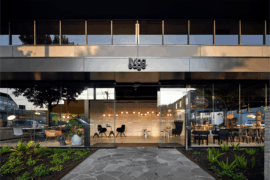
For Aidan Mawhinney, the secret ingredient to Living Edge’s success “comes down to people, product and place.” As the brand celebrates a significant 25-year milestone, it’s that commitment to authentic, sustainable design – and the people behind it all – that continues to anchor its legacy.
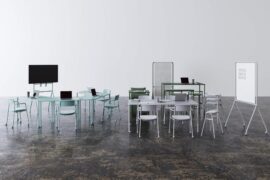
Welcomed to the Australian design scene in 2024, Kokuyo is set to redefine collaboration, bringing its unique blend of colour and function to individuals and corporations, designed to be used Any Way!

With a concept that is at once strikingly new and yet familiar, Lifesize Plans offers a different angle on design. Whether it’s in the process or finished product, projecting plans at real-life scale for people to walk through is an idea with potentially far-reaching consequences.

Paving the way for the post-pandemic office is Wilkhahn. With their new study, ‘Human Centered Workplace,’ the global company provides powerful insights on the new era of work through a range of products designed to encourage growth and productivity in the evolving workplace.
The internet never sleeps! Here's the stuff you might have missed
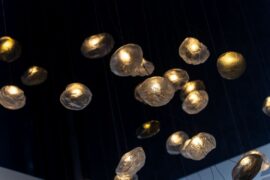
Lighting becomes storytelling in the hands of Bocci and Moooi – brands championed by Space Furniture.
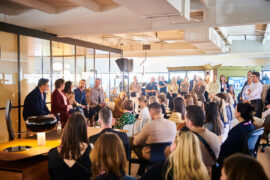
Curated by the Indesign editorial team and hosted at leading showrooms, the Design Discussions series provided thoughtful reflection and debate on key issues shaping the industry.
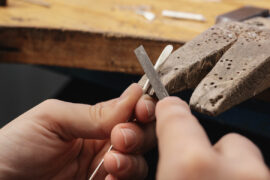
With the inaugural Glenn Murcutt Symposium set to take place in Sydney in September 2025, Pritzker Prize-winner Francis Kéré receives the Murcutt Pin.
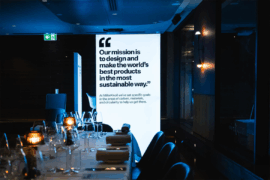
MillerKnoll reimagines the convention of dinner table interactions by plating up a future-forward menu of sustainable design conversation starters as part of the inspiring “Conversations for a Better World” event series.